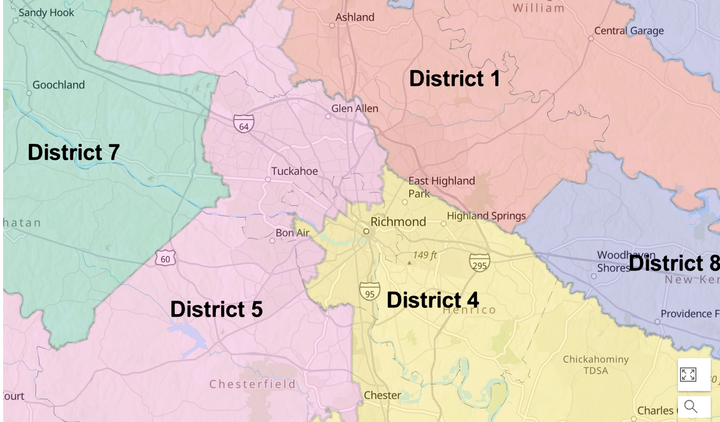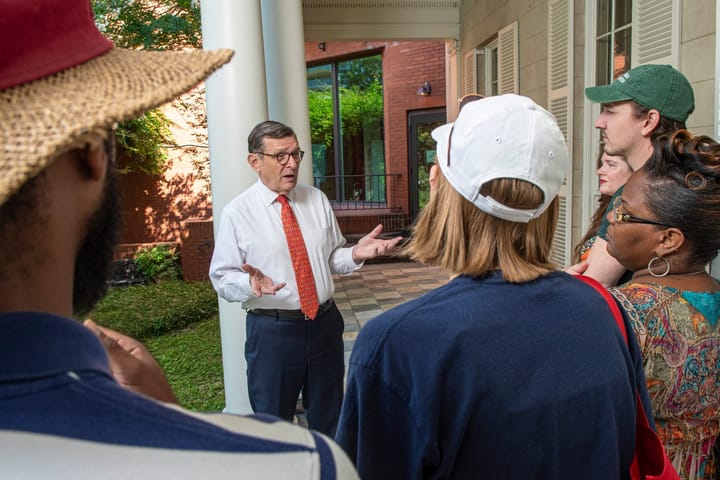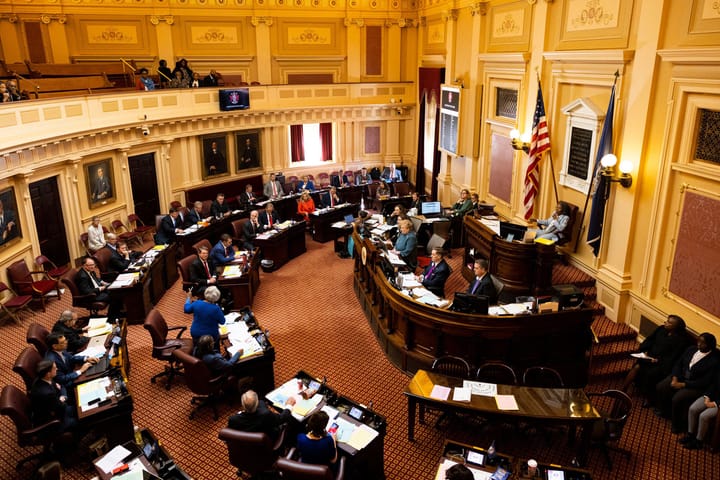
‘A new normal’: Federal cuts to nonprofits leave Richmond based organizations facing uncertainty, looking inward
In the wake of large-scale federal funding cuts, Richmond nonprofits and foundations are forced to prepare for a new normal, one in which primary funding sources are not guaranteed.
Instead, nonprofits and local foundations are looking inward to the community for support, in the form of collaboration, combining resources, funding and advocacy.
Calculating the cuts
Podium RVA is a literacy and education equity nonprofit that serves students ages 10-19 in the greater Richmond area. A large portion of Podium’s funding, between $10,000 and $50,000 annually, comes from the 21st Century Community Learning Centers Initiative. CCLC is one of several programs the Trump administration is currently withholding. As of July 1, the administration is also currently withholding all 2025-2026 school year funding nationwide for the program, amounting to over $6 billion dollars in federal funds.
Typically, Podium receives between $10,000 and $40,000 from CCLC, a large portion of its funding.
“It's been a really weird, interesting time to be an after school program provider where a lot of our schools in our communities really depend on that federal funding, including us,” Executive Director Vicki Yeroian said.
Last week, Yeroian received an email from Afterschool Alliance explaining that their funding for the upcoming school year is part of the funding currently being withheld by the Federal government from the Virginia Department of Education. Because the funding being withheld was approved in March of this year, Yeroian said that as of now, the team is operating as if the funding is there. Still, the team has to plan and brainstorm in case it isn't, she explained.
Karen Legato is the executive director of Health Brigade, Richmond’s oldest running free health care clinic. The clinic’s budget was reduced by more than 58 percent as a result of funding cuts from the recent H.R. 1, as well as funding cuts and federal employee terminations to the Ryan White Team, a federally funded HIV/AIDS healthcare program.
It's difficult, Legato said, to know for certain the scale or the reliability of these funding cuts or funding opportunities. One program Health Brigade receives funding from included a clause assuming funding continues.
“Even though it is expected that Ryan White funding is going to continue, I'm not sure I trust that. As a subcontract of the Virginia Department of Health at this point, even though we have a signed contract for a much smaller amount, we had to cut those services way back. I don't know if I trust that the Federal dollars are still going to come in,” Legato said.
For many nonprofits though, finding or defining a new normal feels challenging as funding news moves rapidly.
“It's very hard to move into some kind of normal or new normal response when every day feels tenuous because you don't know which shoe is going to drop next,” Legato said.
To cut costs, Podium RVA reduced the number of publications they printed out for their most recent literary journal publication.
The Health Brigade was forced to make a more drastic decision. The organization plans to sell its building to cut costs.
When asked about the goal after selling the building, Legato said that the organization plans to rent it back for a year until they can find a smaller space or are able to partner with other organizations. More pressingly, the organization is focused on communication. Legato started a campaign she calls “Care is Resistance" and has been hosting community press conferences for community members and patients.
“Our immediate goal right now is to tell the truth about what is happening in our communities in a public way, and conversations we have with people, and not just those who are affected, but who are impacted,” Legato said.
Reggie Gordon is President and Chief Executive Officer for the Richmond Memorial Health Foundation. As a foundation, Gordon’s organization is in a different position than Podium RVA and Health Brigade, distributing money instead of seeking funding. The foundation has been trying to gain a better understanding of the demands Richmond nonprofits are currently facing to be able to help. Still, the foundation can only do so much.
“Losing federal dollars cannot be replaced by philanthropic or foundation support,” Gordon said. “You know, people might say, ‘I've lost my federal dollars for my federal program.’ If they turn to us, we don't have the capacity to make up that difference, you know. So that's why we need the federal dollars in order to have a major transformative impact in our nation.”
In an April survey of Richmond nonprofits, the most common word respondents used to describe their feelings around funding cuts was “uncertain.”
Changes to the way the city distributes to nonprofits have been an issue for some groups as well.
Yeroian, at Podium RVA, remembers only one other year in which the program didn’t receive city funding. On top of federal cuts, for Podium, these new realities mean thinking more creatively.
Without federal contracts to rely on, Yeroian explained, the nonprofit looks to diversify funds, and host community-based fundraising events. Without the grants and funding sources nonprofits like Podium are used to relying on, Richmond nonprofits are opting to collaborate with each other to continue to serve their community missions.
Looking within
Gordon characterized the present moment for nonprofit funding as both scary and energizing.
Without much time to prepare, some nonprofits are looking to each other to pool resources amongst themselves, something that Gordon says is becoming increasingly useful for the foundations that will continue to fund them.
Now more than ever, Gordon explained, nonprofits need to look to their shared goals to serve as guideposts. Instead of applying for funding separately, Gordon urges local nonprofits to pool both their resources and missions.
“We need to do a lot of self assessment of, ‘Who else does this? Who else is in the space?’ This is not a time to be a lone wolf in your work. This is the time to really do your own due diligence as nonprofits, to say who else serves the same neighborhood? Who else serves the same demographic? Who else has a similar mission? And talk to those persons or organizations — hopefully you're really aligned in thought and belief, so that you can begin to leverage whatever resources you have,” Gordon said.
The Richmonder is powered by your donations. For just $9.99 a month, you can join the 1,000+ donors who are keeping quality local journalism alive in Richmond.
Podium RVA is one of these nonprofits looking to peer organizations for support.
“What are some alternative options, what are some ways that we can support each other that we might not anticipate? Who has extra resources and support now that maybe we can share out?” Yeroian said.
To her, it comes down to “knowing that together, we're going to be working to build more down the road,” she added that's “one of the biggest places of hope that I've seen.”
Gordon recommends that nonprofits approach foundations such as his as collectives. He expects that this will mean fewer nonprofits, and the condensing of existing organizations as a result of pooling resources.
“We might have been forced to do this because of the environment. But, that might be the silver lining of all of this, is this could be our moment where we do something transformational and collaborative and collegial, and to forever set us on a trajectory for success,” Gordon said. “This is a scary time, however, this is the moment. This is the moment where we really put a mirror up to ourselves as the nonprofit sector. There should be no pride in individual accomplishments. We should think of this as: What do we need to accomplish for the sake of the people in the region?”
The biggest issue, Legato said, is predicting what will happen next.
“Right now, we don't feel like we can do a full strategic plan because the environment is so unpredictable, but we're working on a transition plan for how do we take where we are now, absorb the cuts we have and right size the best we can, and then look at what our future will be, particularly within the next year to 18 months. And that planning is just beginning,” Legato said.
Contact Juliana Vandermark at jvandermark@richmonder.org.






